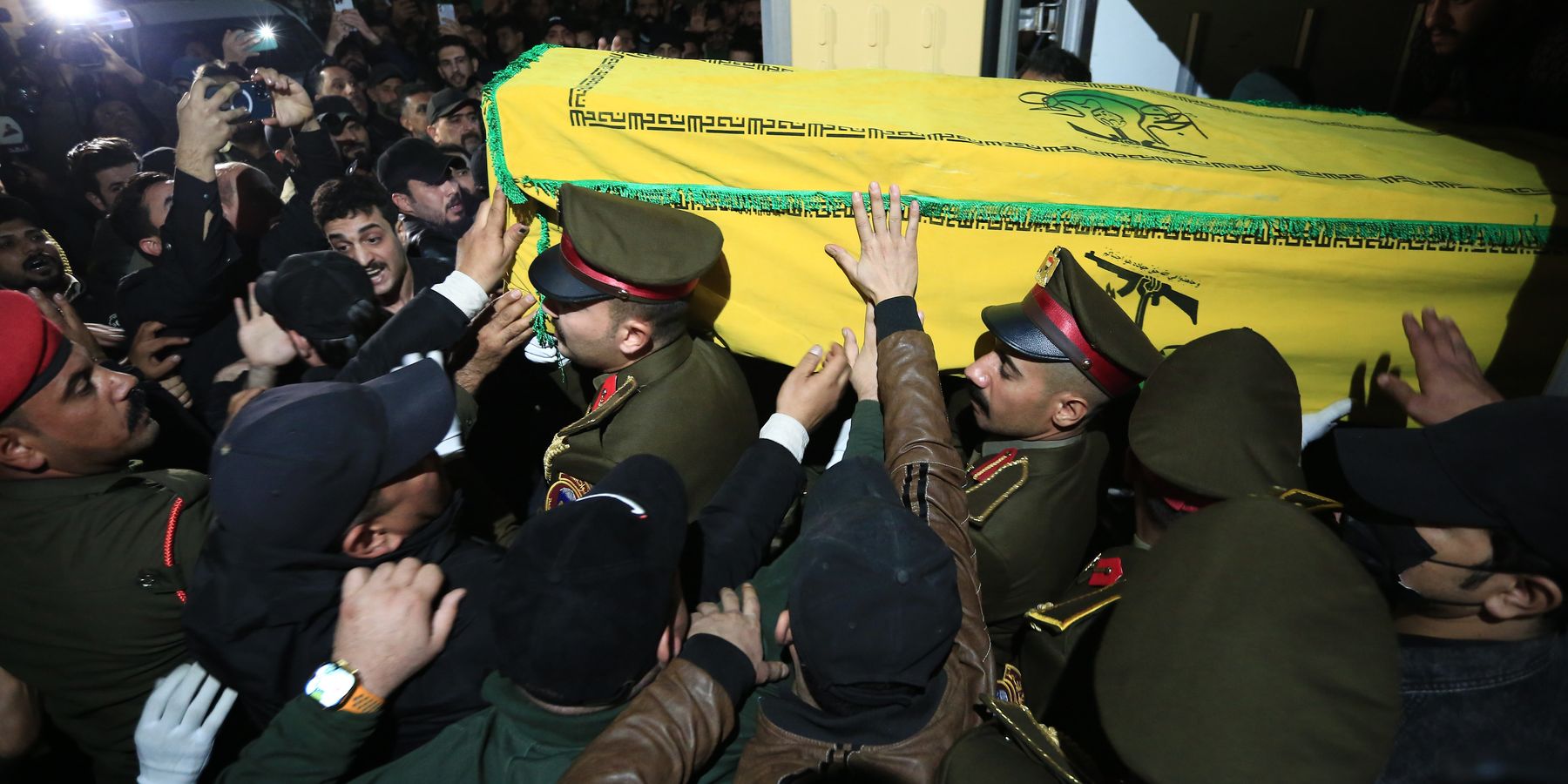The U.S. airstrike that killed Mushtaq Talib al-Saidi, otherwise known as Abu Taqwa, and two other militiamen on Thursday has been unequivocally condemned by Iraqi leaders, starting with President Latif Rashid and Prime Minister Mohammed Shia Sudani down to every parliamentary member in range of a microphone.
“This is a blatant violation of Iraq's sovereignty and security,” said Rashid in a post on X. “We also condemn the attacks on Iraq’s Kurdistan Region. Iraq must not and will not be turned into a proxy battleground. Priority must be given to dialogue as a means to defuse tensions and find common ground.”
“The Iraqi armed forces hold the forces of the international coalition responsible for this attack,” Prime Minister Mohammed Shia al-Sudani’s office said in a statement, also calling a “dangerous escalation and aggression.”
The foreign ministry also weighed in Thursday, saying, “Iraq reserves its right to take a firm stance and take all measures that deter anyone who tries to harm its land and security forces.”
Abu Taqwa was an operational commander in the Iranian-backed Harakat al-Nujaba, which was designated a global terrorist organization by the Trump Administration in 2019. But it is also part of the wider Popular Mobilization Forces (PMF), an umbrella group of paramilitary organizations that are linked to the security apparatus of the Iraq government and were instrumental to the 2014-2017 campaign against Daesh (or ISIS).
Abu Taqwa was the leader of a designated terrorist organization, but the implications of this attack question the very wisdom of this operation. At least six strategic consequences come to mind.
Coming on the heels of a similar U.S. attack less than 10 days earlier, critics say Thursday’s strike was a violation of Iraqi sovereignty and the government’s authority to manage military operations within its own country. Whatever Washington says about respect for Iraq’s autonomy and its relations with Baghdad, the attacks seem to suggest — at least to officials — otherwise.
Second, the United States has been consistent in its messaging that it does not wish to expand the Israel-Gaza war into a regional war. The policy has been ostensibly to contain the conflict, but Thursday’s operation seemed to test that goal in dangerous ways. Israel has its hands full with outside attacks from Hezbollah and the Houthis, and the logic behind provoking the Iraqi PMFs into expanding the conflict is puzzling.
Third, the United States continues to operate against Daesh in Syria, but much of that operation is controlled, resourced, and resupplied from within Iraq. Separately, Washington continues a conventional train and equip security cooperation program with the Iraqi Security Forces as well as augmenting the Iraqi Security Forces with assets ranging from intelligence to air support. This attack puts that entire relationship in question and has reignited the debate over the expulsion of the U.S. forces — an issue which Sudani raised himself only a week ago.
But the debate goes back to the 2020 parliament vote which took place after the assassination of Qassim Soleimani and Abu Mahdi al-Muhandis, the commander of the Iraqi Popular Mobilization Forces and a member of the Iraqi parliament.
Fourth, coming one day after the four-year anniversary of the Soleimani killing and on the heels of a terrorist attack in Iran which killed over 100 civilians at a ceremony at his tomb, it is hard to imagine a worse time to execute another PMF leader. Emotions were already running high among Iraqis and Iranians, and this could easily be exploited.
Fifth, the attacks intensify the risk to American diplomats, troops, and civilians in Iraq. Calls for revenge are resonating throughout the country, and it is hard to ignore the high probability that fresh retaliatory attacks will follow from Thursday’s strike.
In carrying out military operations within the country of an ally, decisions must be respectful of the host country and well-coordinated. Politics, public opinion, and fundamental issues such as sovereignty must be thoroughly weighed. While it may make absolute sense to “take a terrorist off the battlefield” there are deeper considerations when that “battlefield” is in the country of an ostensible ally.
Washington must develop better ways of coordinating with the Iraqis ahead of these operations, especially as General Patrick Ryder, Pentagon spokesman, made it clear yesterday, that the U.S. “maintains the inherent right of self-defense if our forces are threatened.” He did add that “we'll continue to communicate, as we have been all along, closely with our Iraqi partners when it comes to the safety and security of our forces in Iraq.”
It is hard to see how that happened in the drone strike on Mushtaq Talib al-Saidi.
- UPDATE: US troops in Iraq, Syria fending off spate of armed attacks ›
- Did Israel kill Iranian commander to provoke a wider war? ›
- US strikes in Iraq show risk of escalation to wider war ›
- Can the US and Iraq move beyond military ties? | Responsible Statecraft ›
- Erdogan lands in Iraq for much-hyped visit | Responsible Statecraft ›
















